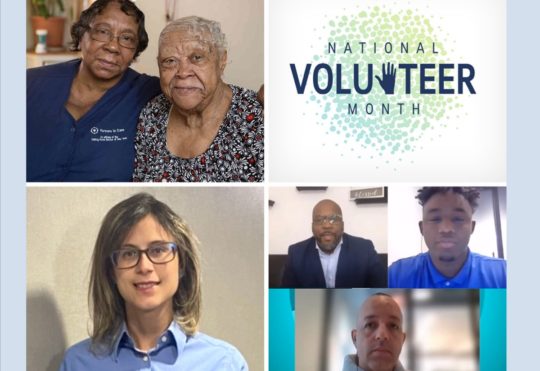NIH-Funded Study Looks at Effects of Delayed Dementia Diagnoses on Patients

If a home care clinician isn’t aware that a patient has been diagnosed with Alzheimer’s disease or another type of cognitive impairment, it can have a profound impact on the treatment protocols chosen and the resulting care outcomes. The VNSNY Center for Home Care Policy & Research is now conducting a study exploring the care trajectories of patients with existing diagnoses of Alzheimer’s disease or dementia, as well as patients who have cognitive symptoms but do not have a formal Alzheimer’s/dementia diagnosis shown on the home care assessment.
Senior Research Scientist Miriam Ryvicker, who has been with the Research Center since 2005, is collaborating with Jacqueline Merrill, Professor of Nursing (in Biomedical Informatics) at Columbia University Medical Center, on an analysis of VNSNY medical records and Centers for Medicare & Medicaid Services (CMS) claims data. This analysis will look at patterns in health care use and care trajectories for VNSNY patients whose medical records may have indicated the presence of Alzheimer’s, dementia or some kind of cognitive impairment at the outset of the patient’s home care, but whose official diagnosis may have been unknown to the VNSNY clinician.
The project is part of a broader research initiative by the National Institutes for Health (NIH) on disparities in treatment for patients with Alzheimer’s disease and dementia. VNSNY received a one-year NIH grant in September 2017 to fund a proof-of-concept study that it hopes will lead to a multi-year NIH award to investigate the topic in detail. By analyzing VNSNY internal data for patients admitted from 2010 through 2012, as well as CMS claims data for the same group of patients over a four-year follow-up period, this study will examine whether the treatment patterns are different when home care clinicians are able to identify early on from other sources that patients have an Alzheimer’s or dementia diagnosis, and whether the clinician’s awareness of the diagnosis can make an identifiable difference in long-term outcomes.
“If we find that knowing about these diagnoses does make a difference,” notes Miriam, “in a future study we could design and test an intervention to better inform the home care team regarding the patient’s cognitive status and dementia diagnosis.”
The Take-Away: The VNSNY Center for Home Care Policy & Research is conducting a study investigating whether a home care clinician’s awareness of an Alzheimer’s or dementia diagnosis in a patient can make an identifiable difference in long-term outcomes.

